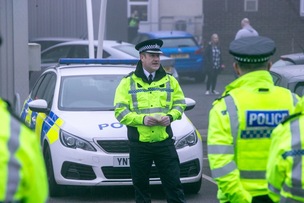CHARGES on council tax bills for police and fire services will rise sharply this year - on top of last week’s announced 4.49 per cent increase in charges for council services approved by cabinet this week.
Fire bosses will decide whether to increase the portion of council tax to cover fire services by 2.99 per cent at its budget meeting on Monday.
Current indications are that South Yorkshire Fire and Rescue will have its government funding slashed by £800,000 in 2019/20.
Householders in ‘band D’ currently pay £71.01 per year for the service - about £1.37 per week - and a decision to increase that by 2.99 per cent would raise about £750,000.
But the amount charged for police services is set to rise by 14 per cent - equating to £24 a year more for a ‘band D’ property.
The South Yorkshire force’s leaders continue to grapple with ‘legacy’ costs from Hillsborough and the Rotherham grooming scandal while working to improve services to the public.
The amount of cash the government provided for policing has been diminishing in real terms since austerity started to bite and the settlement for next year has been more generous than many expected. It was coupled with an opportunity to raise the cash raised alongside council tax to increase by 14 per cent.
The county’s Police and Crime Commissioner, Alan Billings, believes the hike will effectively be a one-off, with future increases expected to be more modest although government policy has put an increased burden on residents rather than Whitehall to pay for policing.
He said: “I am very aware that many households in South Yorkshire are struggling.
“It is not an easy decision to have to make. I think it is a decision you can make this way once. I think an increase in subsequent years has to be modest.
“Up to 2023 we are looking at more modest increases in the precept, rather than a big one like this,” he said.
Dr Billing’s budget allows the force to recruit new officers every month until March 2020, the largest recruitment drive since before the financial crisis more than a decade ago.
While many will go into neighbourhood policing which is most readily seen by the public, others will be used to bolster policing services to which the public remain largely unaware, such as counter-terrorism work and tracking internet-based sex abuse.
“This is the most optimistic I have been, around matters financial for some time,” said Chief Constable Stephen Watson.





























